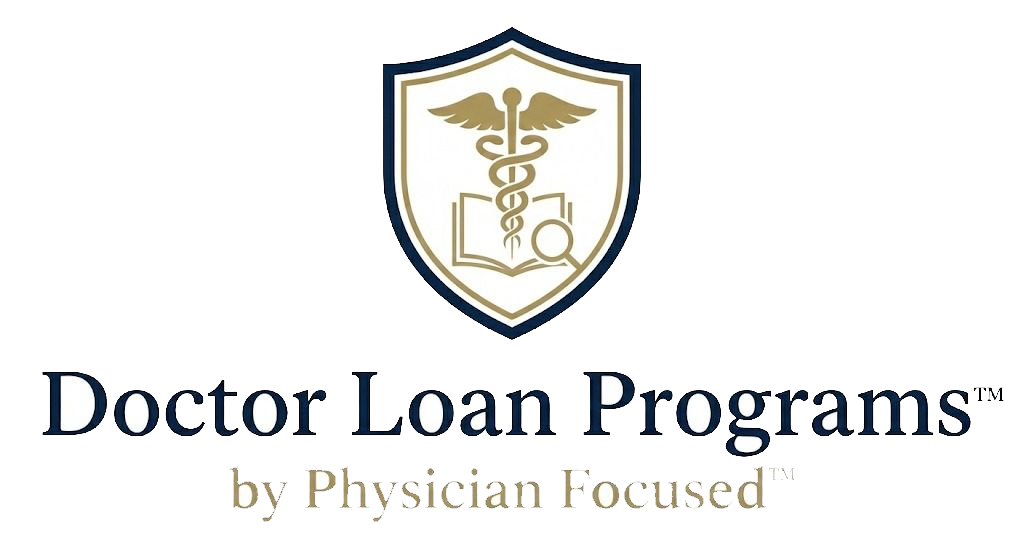Many medical professionals face the challenge of balancing student debt with the desire to purchase a home. With specific mortgage programs designed for doctors, you can leverage your earning potential without waiting to pay off your loans. This guide will walk you through the unique benefits of doctor mortgage loan programs and provide actionable steps to secure your dream home while managing your financial responsibilities effectively.

Decoding Doctor Mortgage Loan Programs
Understanding doctor mortgage loan programs is necessary for medical professionals seeking homeownership. These specialized loans cater to the unique financial situations of doctors who may have substantial student debt but limited credit history or savings. By leveraging these tailored options, you can navigate the housing market with confidence and find a home that suits your lifestyle and career needs.
The Exclusive Benefits for Medical Professionals
Exclusive benefits of doctor mortgage loans extend beyond standard financing options. These programs often feature low or no down payment requirements, making it easier for you to acquire a property without draining your savings. Additionally, they typically offer competitive interest rates and flexible underwriting standards, allowing you to qualify despite high student debt levels, which is common in the medical profession.
Key Features of Doctor Loan Programs
Doctor loan programs include several distinctive features designed to accommodate the unique circumstances of medical professionals. Below are the key features:
- No or low down payment (often up to 100% financing)
- No private mortgage insurance (PMI) required
- Flexible credit score requirements
- Debt-to-income ratio considerations often more lenient
- Loans available for new doctors or residents
Assume that you’re aiming to purchase a home soon after completing medical school or residency; these features allow you to invest in property without financial strain.
With doctor loan programs, you benefit from specialized terms that acknowledge your future earning potential. Financial institutions understand the trajectory of your career, which helps them accommodate your current financial reality. Many lenders provide attractive packages that enable first-time homebuyers like you to invest in real estate while balancing debt management, making homeownership achievable sooner than expected.
- Available for both primary residences and some second homes
- Higher borrowing limits compared to conventional loans
- In some cases, student loans may not factor into your debt-to-income ratio
- Option for adjustable-rate mortgages or fixed-rate loans
- Access to special incentives or grants in certain regions
Assume that maximizing these advantages can significantly impact your financial stability and long-term investment strategies.
Bridging the Gap: Managing Student Debt and Home Buying
Successfully managing student debt while pursuing homeownership involves understanding your financial landscape and strategically planning your future. You can leverage unique loan programs designed for medical professionals, which often allow for higher loan amounts with lower down payments and relaxed credit requirements. Simultaneously, developing a budget that accounts for both your monthly debt obligations and potential mortgage payments is vital for making informed decisions in this balancing act.
Strategies for Balancing Debt and Homeownership
Adopting a proactive approach to balance your student debt while buying a home entails prioritizing financial literacy and cash flow management. Consider consolidating or refinancing your student loans to lower monthly payments, thus improving your cash flow. Additionally, explore doctor mortgage loan programs that cater to your situation, allowing you to secure favorable mortgage terms despite your student debt load. Combining these strategies can put you in a stronger position to achieve homeownership.
The Role of Debt-to-Income Ratios in Approval
Your debt-to-income (DTI) ratio is a key factor lenders evaluate when considering your mortgage application. This ratio compares your monthly debt payments to your gross monthly income, giving lenders insight into your ability to manage additional debt. A lower DTI generally signifies a healthier financial profile, improving your chances of loan approval. Most lenders prefer a DTI below 43%, though some doctor mortgage programs may allow for higher thresholds, offering more flexibility for medical professionals.
Understanding DTI ratios is vital for securing a mortgage, as they directly influence the approval process and your loan terms. For instance, if your monthly student loan payments total $1,200 and your gross monthly income is $8,000, your DTI would be 15%. This figure is favorable and demonstrates that you can comfortably assume a mortgage payment. Regularly reviewing and managing your DTI is beneficial; increasing your income or reducing debt can open more doors in the homebuying process.
Navigating the Loan Application Process
Securing a mortgage can feel daunting, especially for medical professionals balancing student debt and a busy schedule. Familiarizing yourself with the loan application process is important for smooth navigation. Begin with selecting lenders that specialize in doctor mortgage loans, as their understanding of your unique financial situation can simplify requirements. Be prepared to discuss your income potential, as many lenders will consider future earnings in their assessment.
Essential Documentation for Medical Professionals
Gathering the right documentation is vital to expedite your loan application. You will typically need to provide proof of income, including pay stubs and tax returns, along with your medical license and employment contract if applicable. Additionally, a detailed list of your student loans and debts will help lenders assess your financial health more accurately.
Tips for a Streamlined Application Experience
Optimize your loan application experience by being organized and proactive. Start by summarizing your financial profile, including debts and assets, to anticipate lender questions. Submitting documents promptly and ensuring everything is clearly labeled can prevent delays. Don’t hesitate to reach out to your lender for clarity on any requirements or potential issues.
- Keep your financial documents organized, including bank statements and tax returns.
- Communicate openly with your lender about your financial situation.
- Assume that timely submissions are important for maintaining momentum in your application process.
Approach your application with confidence by preparing for potential inquiries from your lender about your finances. Hard copies and digital backups of all necessary paperwork eliminate the risk of missing documentation. Consider scheduling a meeting with your lender to create a checklist tailored to your situation, ensuring you remain on track. Always confirm deadlines to avoid any unnecessary hold-ups.
- Use a dedicated folder, either digital or physical, for your mortgage-related documents.
- Follow up regularly with your lender regarding your application status.
- Assume that maintaining a proactive attitude can significantly enhance your application experience.
Maximizing Your Home Investment as a New Doctor
As a new doctor, making strategic decisions about your home investment can significantly impact your financial future. Consider your long-term goals, such as career stability and family planning, and how these will influence your housing needs. Investing in a property that aligns with your lifestyle and career considerations not only provides immediate benefits but can also yield future financial growth.
Understanding Market Factors to Consider
Analyzing market trends, neighborhood dynamics, and property value projections is imperative for maximizing your home investment. Factors such as job growth, school ratings, and community amenities can significantly affect property desirability. Pay attention to:
- Local real estate market trends
- Future development plans in the area
- Average appreciation rates
- School district quality
- Commuting options to your workplace
- Community services and amenities
- Your lifestyle needs
- Investment potential of different neighborhoods
- Current mortgage rates
- Local economic health
Any insights drawn from these factors can position you to make informed decisions that enhance your investment’s growth potential.
Leveraging Your Professional Network for Insight
Your professional network is a valuable resource when navigating the real estate market. Colleagues, mentors, and peers can offer firsthand knowledge about neighborhoods, recommend trusted real estate agents, and provide information on market trends based on their experiences. Engage in conversations during professional gatherings or online forums to gather diverse perspectives that could influence your housing decisions.
Sharing your thoughts and seeking advice from fellow doctors or healthcare professionals can unveil unique insights not readily found in online resources. For instance, you may discover which areas are more favorable for commuting based on shared experiences. Utilize platforms like LinkedIn or specialized medical forums to tap into the collective wisdom of your network. Seek recommendations for professionals such as real estate agents or mortgage brokers who understand the nuances of doctor mortgage loan programs. Their expertise can save you time and enhance your confidence in your investment decisions.
Overcoming Common Misconceptions
Many assume that student debt disqualifies healthcare professionals from obtaining a mortgage. However, loan programs tailored for doctors recognize potential over traditional financial assessments. These programs offer flexible eligibility requirements, enabling you to secure financing that accommodates your unique situation without the burden of excessive financial documentation.
Debunking Myths About Doctor Loans
Doctor loans are often misunderstood, with many believing they require a large down payment or are only available to those with perfect credit. In reality, many lenders offer low or no down payment options and consider a future income potential rather than solely focusing on current credit scores, allowing you to purchase a home even while managing student loans.
Real Life Success Stories from Healthcare Professionals
Numerous healthcare professionals have successfully utilized doctor loan programs to purchase their dream homes while managing student debt. For instance, a recent graduate in residency secured a home in a desirable neighborhood with no down payment, demonstrating that financial barriers can be minimized through strategic use of specialized mortgage options.
Consider Dr. Sarah, an orthopedic surgeon who purchased her first home with a doctor mortgage program. Despite carrying over $200,000 in student loans, she was able to secure a competitive interest rate and close on a beautiful home just minutes from her workplace. With the saved down payment, she leveraged those funds for home improvements, enhancing her investment while comfortably managing her debt. These success stories illustrate how informed financial decisions can lead to homeownership, even amidst student loan obligations.
To wrap up
With this in mind, utilizing doctor mortgage loan programs can significantly facilitate your journey to homeownership, even while managing student debt. These tailored financial options allow you to leverage your future earning potential without being hindered by your current debt load. By exploring these programs, you can secure favorable terms and conditions that align with your unique situation. Embrace this opportunity to invest in your home and establish financial stability, all while focusing on your career in the medical field.




